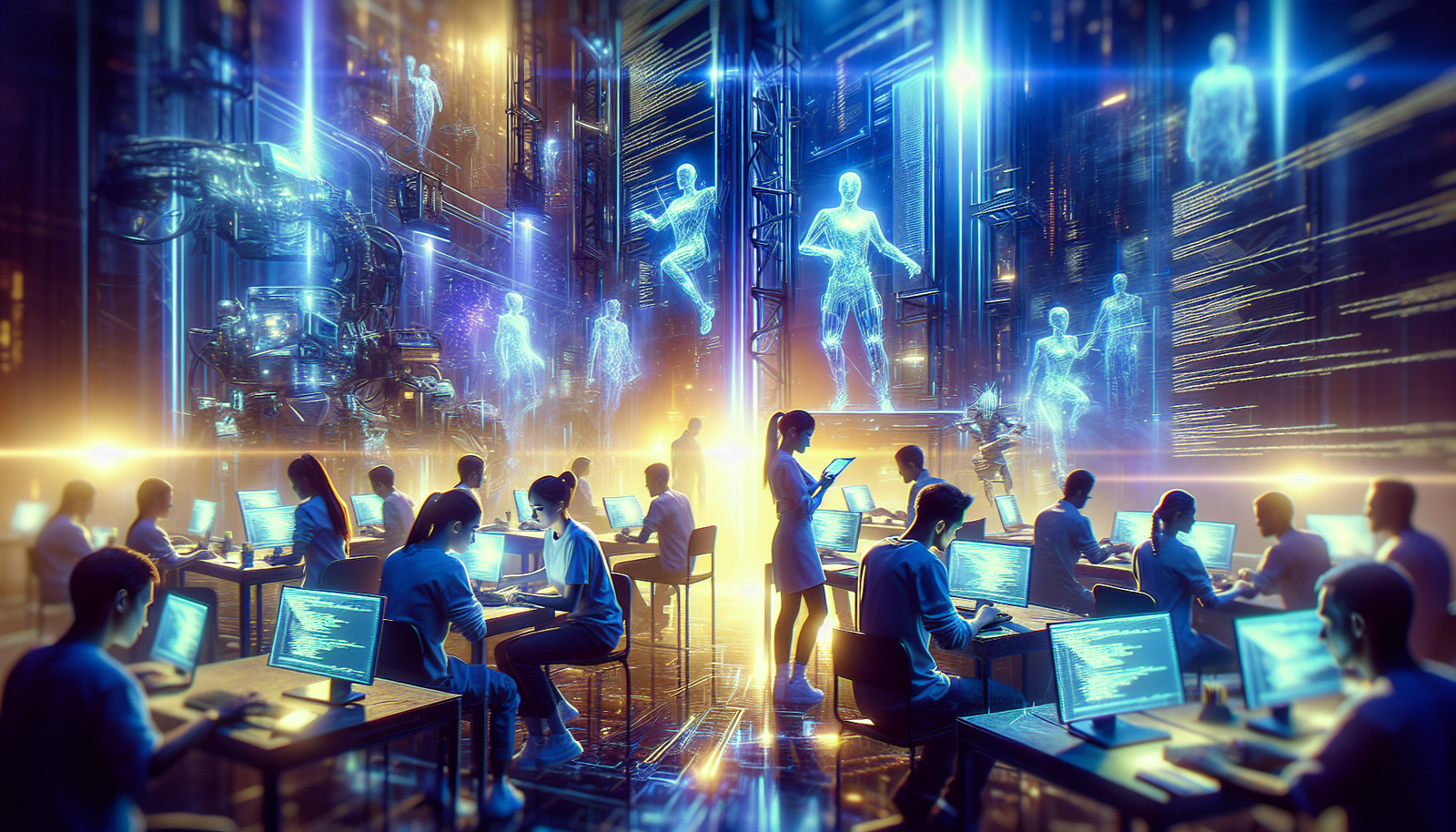The rise of artificial intelligence defines a new geopolitical era, where technological dominance takes on a strategic character. The AI arms race concerns not only military capabilities but also the ethical values that arise from it. With the emergence of AI, the balance of military forces is transformed, redefining the paradigms of global security. Armed forces, faced with unprecedented challenges, must now integrate these disruptive technologies. After decades of research, the imperative necessity increases interest in the militarization of AI.
A Major Turn towards Artificial Intelligence
The technology of artificial intelligence (AI) is experiencing rapid development today, particularly in the military field. France is positioning itself to play a major role in this global transformation, with the ambition to become a leader in the use of AI within its armed forces. The French armies must necessarily adapt to this new reality, or risk being outpaced by competing nations.
The Creation of a New Ministerial Agency
The French government has announced the creation of a new ministerial agency dedicated to artificial intelligence. This initiative aims to catalyze innovation and the integration of AI into military processes. The message is clear: either the armed forces embrace this technological revolution, or they show signs of falling behind compared to other powers.
Strategic Applications of AI in the Military
The applications of AI in the defense sector are varied and promising. From cybersecurity to surveillance, and logistical management, artificial intelligence is set to optimize the efficiency of military operations. With the emergence of autonomous systems such as robot-dogs and drone swarms, AI is revolutionizing the battlefield.
A Response to Emerging Threats
In the face of evolving threats, such as hypersonic missiles, AI offers strategic solutions. These missiles, capable of reaching impressive speeds, pose a novel challenge to traditional defense systems. Artificial intelligence could counter these threats by improving detection and the rapid response of armed forces.
Ethical Debates on the Use of AI
The question of ethics arises urgently in the military use of artificial intelligence. The moral implications of automating tactical decisions provoke intense debate. Military personnel must ask themselves whether it is prudent to use AI without thorough ethical analysis. This questioning is of paramount importance for the credibility of the armed forces.
France and the AI Arms Race
France cannot ignore the growing dynamics of the arms race in artificial intelligence. Global powers are investing heavily to outpace their rivals. This context calls for a collective commitment to ensure strategic autonomy in the technological domain. Historical lessons must guide decision-making and the implementation of new technologies.
A Promising and Risky Future
The development of artificial intelligence in the military field presents both striking and concerning prospects. Technological advances open unexplored horizons but also expose potential devastating risks. Democracies must navigate carefully to ensure that this new digital army serves their interests and does not become a tool of domination.
Towards Innovative Defense
The integration of AI into defense systems represents a real challenge for modern armies. The ability to innovate and adapt to rapid changes in the technological environment is crucial. Armed forces must rethink their strategies, fostering synergies between human and machine to remain competitive on the international stage.
The Specialists at the Helm
Experts in emerging technology, cyber defense, and artificial intelligence are taking the reins of this militarized evolution. Their knowledge and vision will guide France into this new era of military command. Collaboration between the public and private sectors will be essential to maximize the impact of artificial intelligence in defense.
Frequently Asked Questions about the AI Arms Race
What are the main motivations behind the AI arms race?
The AI arms race is primarily driven by the pursuit of military superiority, the enhancement of national security, and the necessity to address new types of threats, such as hypersonic missiles.
How is AI integrated into military defense systems?
AI is integrated into defense systems through technologies such as drone automation, strategic decisions based on big data analysis, and the development of infantry support robots.
What are the ethical risks associated with the use of AI in military contexts?
Ethical risks include the potential for fatal errors, autonomous decision-making without human intervention, as well as implications for human rights and accountability in cases of attacks conducted by AI.
To what extent are countries vying for dominance in military AI?
Countries are investing heavily in the research and development of military AI, leading to intensified efforts to attract the best talent, develop cutting-edge technologies, and establish strategic alliances.
What are the potential benefits of AI in military operations?
Benefits include faster decision-making, better intelligence analysis, increased operational efficiency, and the possibility of reducing human losses by shifting certain tasks to machines.
What are the geopolitical implications of the AI arms race?
Geopolitical implications include a reevaluation of international alliances, an escalation of tensions among military powers, and debates surrounding international law related to autonomous weapons.
How is France positioning itself in the AI arms race?
France aims to become a leader in military AI by launching strategic initiatives and creating agencies dedicated to research and integration of AI into its armed forces.
What measures can be taken to regulate the use of AI in the military sector?
Measures include establishing international regulations, developing ethical standards in AI programming, and dialogues between nations to avoid an uncontrolled arms race.






